|
9/16/2019 over S$130,000 RAISED for Wildlife Conservation & FEMALE Empowerment in North KenyaRead Now Singapore, 16 September 2019 – The Africa Society of Singapore and HER Planet Earth have joined forces to raise awareness and funds for projects supporting wildlife conservation and female empowerment in North Kenya. Via a sparkling 200-person private ball at the Grand Hyatt Hotel in Singapore on 14 September 2019 - which featured the work of celebrated Photographer David Yarrow - and an all-female expedition to North Kenya, due to kick off this October, the partnership has raised over S$130,000 to date, for Conservation International, a charity that works to protect nature for the benefit of humanity. On 1 October 2019, the self-funded HER Planet Earth team of 16 women from around the world will embark on a pioneering expedition to trek 100km across Northern Kenya's Karisia Hills. The trail has never been attempted before, and will take the team and its safari camel train on a new passage across the mountains. Guided by expert tracker Kerry Glen and accompanied by Samburu or Laikipia Maasai guides, the women will be hikking along tough but varied terrain, including sandy river beds, ancient elephant tracks, old growth forest, plains and hilly peaks. The expedition will range at altitudes from 3,500ft to 6,000ft (or 1,000 to 2,000 metres) and in daily temperatures that could fluctuate between 10 to 30 degrees Centigrade. The women will be up early, before sunrise, walking 5-6 hours every day to reach the next camp and can expect to see big game on the walking safari. The totality of the funds raised by this campaign will go to support a range of projects run by Conservation International in North Kenya, focused on gender equality. These may include the Reteti Elephant Sanctuary - the first community owned and mainly female operated elephant sanctuary in Kenya - the expansion of eco-tourism facilities and the establishment and support of a mobile anti-poaching team for the region. Michael O’Brien-Onyeka, Senior Vice President of Conservation International’s Africa Field Division said, “Conservation International is excited by this remarkable expedition put together by our partner ‘HER Planet Earth’ . It provides a unique opportunity for an adventurous group of women from across the world to connect directly with the rich but threatened mosaic of wildlife, landscape and people in remote Northern Kenya, while supporting a model of community-led conservation that delivers tangible and sustainable benefits including peace and security, enhanced incomes and women empowerment and resilience.” He added: “ We are truly honoured that the communities and women that we work with across Northern Kenya will benefit significantly from the awareness and funds that this exceptional expedition will provide.” Now in its third year of operation, Singapore-based NGO HER Planet Earth, aims to empower women as a way to mitigate climate change. By working with their charity partners to promote gender equality and build more eco-friendly livelihoods around the world, the organisation hopes to help women become more climate change resilient, while making environmental conservation a priority. Over the last few years, HER Planet Earth's expeditions have taken all-female teams sailing to remote islands in the Philippines, climbing in Antarctica, exploring the largest caves in the world in Vietnam, and trekking across glaciers and volcanos in Iceland - all in an effort to raise awareness and funds for these key initiatives. “It is vital that we empower more women to play a central role in decision-making at all levels of society. Only then will environmental sustainability become a true reality,” said HER Planet Earth Founder & CEO, Christine Amour-Levar, who wants to see ‘gender’ at the heart of climate action. Find out more:
About the Africa Society: The Africa Society was founded in 1963 and has for mission to bring members together to celebrate African culture and friendships and African causes. About HER Planet Earth: HER Planet Earth is a global advocacy movement that promotes a deeper connection between women empowerment and the integrity of the environment. The non-profit organisation, which is headquartered in Singapore, aims to inspire more people to become policymakers and agents of change in order to achieve social and economic equity and a healthy and thriving planet. HER Planet Earth organises pioneering and self-funded expeditions around the world to increase awareness of environmental degradation and raise funds for programmes that empower and educate underprivileged women affected by climate change - ultimately helping them build climate change resilience. About Conservation International: For over 30 years Conservation International has worked to protect Nature with cutting-edge science, innovative policy and global reach. Conservation International seeks to break the cycle of the destruction of Africa’s natural capital by contributing to a new development paradigm where growth embraces, not erodes, nature, and where nature is valued, protected and managed for the benefit of human wellbeing. Visit www.conservation.org for more information or contact the Asia Pacific office to find out how you can help Conservation International’s work in the region. Team Profiles: The team of this HER Planet Earth Kenya 2019 Expedition is formed by 16 intrepid women of diverse nationalities and backgrounds. While they are all incredibly well accomplished in their careers, they are equally passionate about protecting the environment and empowering underprivileged women. To read the team bios please click here. Community Conservation and Gender Imbalance: This model of community conservation has changed local attitudes toward wildlife and the team’s journey will take them deep into the very landscapes and communities where CI’s work is done. All funds raised will be used to benefit these local people; to give them a voice and provide a platform for their development of sustainable enterprises and family livelihoods. The ripple effect will extend to education, health, family income and even security, peace and stability. Gender imbalance is a major factor obstructing sustainable development in Africa and poverty is a key factor undermining a girl’s right to education; a cycle that reinforces a large gender gap. Many factors combine to truncate a girl’s education and a young women’s career, limiting the full realisation of her productive capacities. On the other hand, educating a girl means that as a woman, she is then empowered and more likely to participate in development efforts and in political and economic decision-making. Over 50% of the practitioners in the existing production sectors where CI’s Africa programme works are women. They are often marginalised and lack the skills and education to be true agents of change or to be able to influence policy in their favour. Research by the World Bank, UNICEF shows that better educated women have fewer children (the difference between 0 years of schooling and 12 years is almost 4 to 5 children per woman). Further research shows that every additional year of schooling for a girl increases her future earnings by 10 to 20% and that each additional year of schooling for children increases the average annual National GDP by 0.37%. The advantages of girl’s empowerment, therefore, do not stop at the boundaries of a single child, but extend through families, communities, and entire nations. Wildlife Trafficking: The dramatic rise of wildlife trafficking, which has become an annual US$10bn illicit enterprise, now represents one of the world’s four most profitable criminal activities. Wildlife trade follows similar routes and is linked to the same terrorist organizations and organised criminal syndicates that are behind the illegal trade trafficked human beings (as well as drugs and weapons). Community conservation seeks to tackle insecurity holistically by focusing on strengthening community ties and encouraging non-violent conflict resolution. Conservancy rangers gain employment and bring increased security which allows others to benefit from the development of other skills, alternative livelihoods and a connection to new markets. To donate to the mission please visit the team’s fundraising page here. To see pictures of the team’s journey, ‘LIKE’ their Facebook page, follow them on Twitter and Instagram: https://www.facebook.com/herplanetearth/ https://www.instagram.com/herplanetearth/ https://twitter.com/herplanet_earth 5/30/2019 ‘HER Planet Earth’ Team Embarks on Unchartered Terrain Across Northern Kenya’s ‘Biological Bonanza’ for Conservation InternationalRead Now (Singapore, 28th May 2019) On 1 October 2019, a self-funded team of 16 women from around the world will embark on a pioneering expedition to trek 100km across Northern Kenya’s remote Matthews range. The trail has never been attempted before and will take the group and its safari camel train on a new passage across the mountains. The team, coming together under the banner of ‘HER Planet Earth’ - a non-profit organisation headquartered in Singapore dedicated to gender equality and environmental conservation – aims to raise a combined total of $150,000 USD for Conservation International (CI), a charity that works to protect nature for the benefit of humanity. HER Planet Earth, now in its third year of operation, raises awareness and funds via challenging expeditions across the globe. Pioneering in nature, they support organisations that champion underprivileged women affected by climate change to help empower and advance their life and community. Recent HER Planet Earth expeditions have taken all-female teams to remote islands in the Philippines, Mountains in Antarctica and to the largest caves in the world in Vietnam. Guided by expert tracker Kerry Glen and accompanied by Samburu or Laikipia Maasai guides, the women will be trekking along tough but varied terrain, including sandy river beds, ancient elephant tracks, old growth forest, plains and hilly peaks. The expedition will range at altitudes from 3,500ft to 5,000ft (or 1,000 to 1,600 metres) and in daily temperatures that could fluctuate between 10 to 30 degrees Centigrade. The team will be up early, before sunrise, walking 5-6 hours every day to reach the next camp and can expect to see big game on the walking safari. The Matthews Range in North Kenya The Matthews Range, also known as the Lenkiyio Hills, rises up out of the semi-desert, a chain of peaks covered in dense dewy forest. Dubbed a ‘biological bonanza’ by the BBC, this mountain forest is a stronghold for a wide range of species including the melanistic leopard (also known as the black panther), elephant, Colobus monkey, greater kudu, waterbuck and giant forest hogs. More than 200 bird species have been counted in the area along with more than 150 species of butterflies. During the expedition, HER Planet Earth will meet the fascinating Samburu people, semi-nomadic pastoralists who are cousins to the Maasai. With the continent challenged by economic and political under-development, Northern Kenya is a great model for community-driven co-management of shared natural resources set in the most ancient landscape of human and animal co-habitation on the planet. The funds raised will go to support a range of projects focusing on gender equality including the Reteti Elephant Sanctuary - the first community owned and mainly female operated elephant sanctuary in Kenya, the expansion of eco-tourism facilities and the establishment and support of a mobile anti-poaching team for the region. The group will also work with grantees in Microsoft’s AI for Earth program, including Vulcan Earth Ranger, in collecting information on activities, animals and assets in protected areas to help conservationists. Wildlife that is traded legally through the pet and collector market is a growing multi-billion-dollar industry, yet it currently lacks the proper technologies and tools needed, opening the way for increased illegal wildlife trade, and in many ways the source of why animals need to be protected in the first place. Conservation International is expanding on the work being done to monitor animals on the ground by developing and implementing a wildlife enforcement and regulatory application that will provide customs agents new technology-based solutions designed to ensure only legally traded pet species are flowing through border points. Conservation International will continue to partner with organizations such as Microsoft to address the holistic conservation issues being faced. Michael O’Brien-Onyeka, Senior Vice President of Conservation International’s Africa Field Division said: “CI is excited by this remarkable expedition put together by our partner ‘HER Planet Earth’ . It provides a unique opportunity for an adventurous group of women from across the world to connect directly with the rich but threatened mosaic of wildlife, landscape and people in remote Northern Kenya, while supporting a model of community-led conservation that delivers tangible and sustainable benefits including peace and security, enhanced incomes and women empowerment and resilience.” He added: “ We are truly honoured that the communities and women that we work with across Northern Kenya will benefit significantly from the awareness and funds that this exceptional expedition will provide.” “While climate change is a global phenomenon, its impact is not spread across a level playing field. Its effects are felt locally, and poor people suffer the most. Among the world’s 1.3 billion people living in poverty, the majority are women. It is vital we empower more women to play a central role in decision-making at all levels of society. Only then will environmental sustainability become a true reality,” said HER Planet Earth Founder & CEO, Christine Amour-Levar, who wants to see ‘gender’ at the heart of climate action. Neal Chandaria, Honorary Consul of the Republic of Kenya in Singapore said, “we are very grateful for the effort of Her Planet Earth and their team of committed women who will be raising funds for community conservation in Northern Kenya later this year. It is always encouraging to work with such passionate individuals and we’re excited to see this remarkable trip coming together for the benefit of people and wildlife in our beautiful country, Kenya. For over 30 years Conservation International has worked to protect Nature and now, more than ever, it is crucial for us all to value and protect nature for the benefit of human wellbeing.” HER Planet Earth’s objective is to inspire people to leave their comfort zones, families and homes for a certain period of time, while pushing their limits in an effort to rally support for a worthy cause. At the core of the organisation’s culture is a commitment to empower underprivileged women, a passion for adventure and a deep respect and love of nature. HER Planet Earth seeks to take participants on pioneering, self-funded, expeditions around the world, so that they can make new discoveries, flourish as individuals, but most importantly, contribute to society. By travelling in such challenging conditions, the team hopes to bring international attention to the need for societies, governments and corporations to get involved and help support climate action and women empowerment. To donate to the mission please visit the team’s fundraising page here. Team Profiles The team of this HER Planet Earth Kenya 2019 Expedition is formed by 16 intrepid women of diverse nationalities and backgrounds. While they are all incredibly well accomplished in their careers, they are equally passionate about protecting the environment and empowering underprivileged women. To read the team bios please click here. NOTES TO EDITORS About HER Planet Earth HER Planet Earth is a global advocacy movement that promotes a deeper connection between women empowerment and the integrity of the environment. The non-profit organisation, which is headquartered in Singapore, aims to inspire more people to become policymakers and agents of change in order to achieve social and economic equity and a healthy and thriving planet. HER Planet Earth organises pioneering and self-funded expeditions around the world to increase awareness on environmental degradation and raise funds for programmes that empower and educate underprivileged women affected by climate change - ultimately helping them build climate change resilience. The organisation partners with nature lovers, environmentalists, scientists, polar explorers, adventurers, women’s rights advocates, corporates, tech entrepreneurs, feminists and NGOs that have programmes and structures in place dedicated to building a deeper connection between gender equality, genuinely sustainable development and the protection of the environment. www.HERplanetearth.com About Conservation International For over 30 years Conservation International has worked to protect Nature with cutting-edge science, innovative policy and global reach. Conservation International seeks to break the cycle of the destruction of Africa’s natural capital by contributing to a new development paradigm where growth embraces, not erodes, nature, and where nature is valued, protected and managed for the benefit of human wellbeing. www.conservation.org Community Conservation and Gender Imbalance This model of community conservation has changed local attitudes toward wildlife and the team’s journey will take them deep into the very landscapes and communities where CI’s work is done. All funds raised will be used to benefit these local people; to give them a voice and provide a platform for their development of sustainable enterprises and family livelihoods. The ripple effect will extend to education, health, family income and even security, peace and stability. Gender imbalance is a major factor obstructing sustainable development in Africa and poverty is a key factor undermining a girl’s right to education; a cycle that reinforces a large gender gap. Many factors combine to truncate a girl’s education and a young women’s career, limiting the full realisation of her productive capacities. On the other hand, educating a girl means that as a woman, she is then empowered and more likely to participate in development efforts and in political and economic decision-making. Over 50% of the practitioners in the existing production sectors where CI’s Africa programme works are women. They are often marginalised and lack the skills and education to be true agents of change or to be able to influence policy in their favour. Research by the World Bank, UNICEF shows that better educated women have fewer children (the difference between 0 years of schooling and 12 years is almost 4 to 5 children per woman). Further research shows that every additional year of schooling for a girl increases her future earnings by 10 to 20% and that each additional year of schooling for children increases the average annual National GDP by 0.37%. The advantages of girl’s empowerment, therefore, do not stop at the boundaries of a single child, but extend through families, communities, and entire nations. Wildlife Trafficking The dramatic rise of wildlife trafficking, which has become an annual US$10bn illicit enterprise, now represents one of the world’s four most profitable criminal activities. Wildlife trade follows similar routes and is linked to the same terrorist organizations and organised criminal syndicates that are behind the illegal trade trafficked human beings (as well as drugs and weapons). Community conservation seeks to tackle insecurity holistically by focusing on strengthening community ties and encouraging non-violent conflict resolution. Conservancy rangers gain employment and bring increased security which allows others to benefit from the development of other skills, alternative livelihoods and a connection to new markets. To donate to the mission please visit the team’s fundraising page here. To see pictures of the team’s journey, ‘LIKE’ their Facebook page, follow them on Twitter and Instagram: https://www.facebook.com/herplanetearth/ https://twitter.com/herplanet_earth https://www.instagram.com/herplanetearth/ PHOTO CREDITS: ©Ami Vitale, ©Georgina Goodwin.
Raja Ampat Scientific Expedition Uncovers New Manta Ray Data and Fish Species
By Christine Amour-Levar Humans have identified some two million species of plants, animals and microbes on Earth, but scientists estimate there are millions more left to be discovered. On a recent scientific expedition to Raja Ampat in West Papua, one of the most remote corners of Indonesia’s vast archipelago, world renowned Conservation International Scientist, Dr Mark Erdmann and famed Ichthyologist, Dr. Gerry Allen, discovered new manta ray cleaning stations and two new species of fish – the Grallenia Goby (pictured below) and the Silhouette Goby, the names of which are yet to be decided. Raja Ampat is considered the global center of tropical marine bio-diversity and is referred to as The Crown Jewel of the Bird's Head Seascape, which also includes Cenderawasih Bay and Triton Bay. It is home to more than 600 species of hard corals equaling about 75% of known species globally, and more than 1,700 species of reef fish which is the richest in terms of biodiversity comparing to the size of the region in the world. Endangered and rare marine mammals such as Dugongs, whales and dolphins including orcas inhabit Raja Ampat's waters. The area is also a rich nesting ground for sea turtles who travel from as far as Hawaii and various parts of the Atlantic Ocean to lay their eggs on Raja Ampat's pristine shores. The seven-day expedition sought to fill in knowledge gaps in the population and migration patterns of manta rays in Raja Ampat, as well as survey coral reef fish biodiversity in some of its lesser-visited areas. Armed with a team of Conservation International and Manta Trust scientists, manta ray tagging equipment and cutting edge drone technology, the trip was a notable progression from Dr. Allen and Dr. Erdmann’s typical journeys, and offered the luxury accommodation and five-star hospitality from Indonesia’s luxury private charter vessel Rascal and her crew around the clock. Dr. Allen shared: ‘Rascal was able to take us to Ayau — an area off the beaten path. The biodiversity in these waters is overwhelming, and even after 20 years of diving in Raja Ampat it still continues to amaze me. There is so much we have yet to discover and we are still finding new fish species on most expeditions to Raja Ampat.’
The expedition immersed the team into Raja Ampat’s fascinating unstirred waters, local environment, culture and sustainability. As a result, they made scientific headway with the underwater discovery of a new manta cleaning station at Dayan (off Batanta Island), identifying at least 25 new manta individuals, and another cleaning station in Ayau. The trip was also pioneering in terms of surveying technique, with the successful application of brand new drone technology to survey for feeding mantas, playing a vital part in the discoveries. Dr. Erdmann explained: ‘Until recently we’ve used boats to survey for mantas feeding in new areas, but due to the nature of the species, this approach is frequently challenging and time-consuming; as mantas are black on top and white underneath, they can be quite difficult to spot cruising beneath the surface, particularly when the sky is overcast. From a vantage point 50-100m above the sea surface, a drone can see much further than the human eye and avoids the glare on the sea surface we frequently have to deal with when scanning from boats. By using them in our efforts, we can cover a large area of sea significantly faster and more effectively’. The drones also allowed for monitoring of manta ray feeding and cleaning behaviour in shallow waters. Conservation International is currently training Indonesian scientists to use this new technique during future manta expeditions. Dr. Mark Erdmann and Dr. Gerry Allen are highly regarded for their contribution to marine biology. With twenty species of fish named after him and having described over 500, Dr. Allen, together with Dr Erdmann, were thrilled to discover at least two new species of fish whilst on the Rascal voyage. Additionally, they recorded seven species of reef fish not previously known to inhabit the Bird’s Head Seascape, proving once again that its waters are the epicentre for marine biodiversity. The area's massive coral colonies along with relatively high sea surface temperatures, also suggest that its reefs may be relatively resistant to threats like coral bleaching and coral disease, which now jeopardise the survival of other coral ecosystems around the world. The Raja Ampat islands are remote and relatively undisturbed by humans. The high marine diversity in there is strongly influenced by its position between the Indian and Pacific Oceans, as coral and fish larvae are more easily shared between the two oceans. Raja Ampat's coral diversity, resilience, and role as a source for larval dispersal make it a global priority for marine protection. Watch this short film about the expedition on board the Rascal: |
Details
AuthorChristine Amour-Levar Archives
December 2023
Categories
All
|

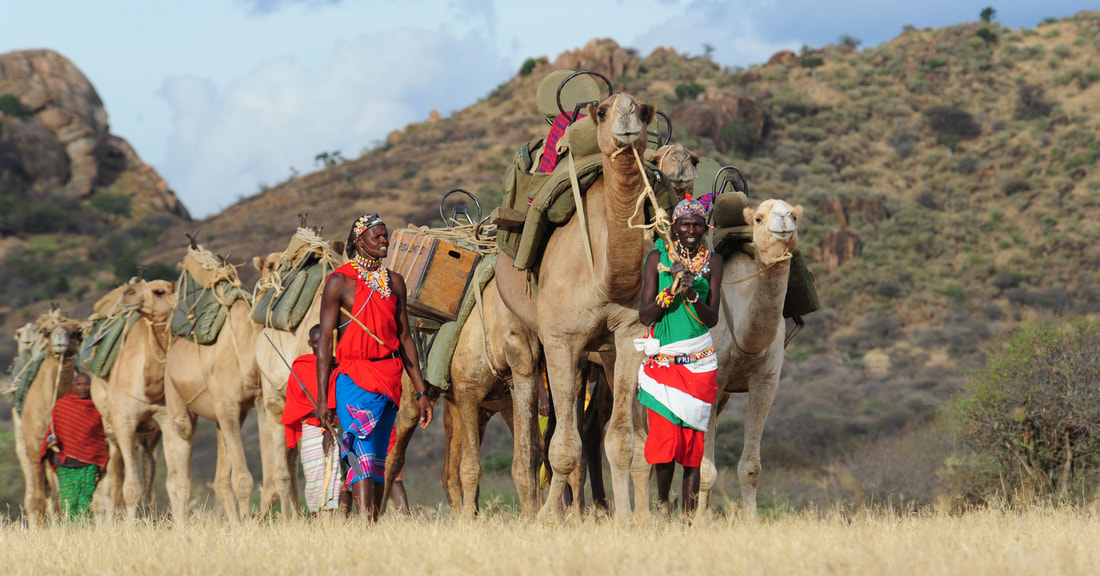
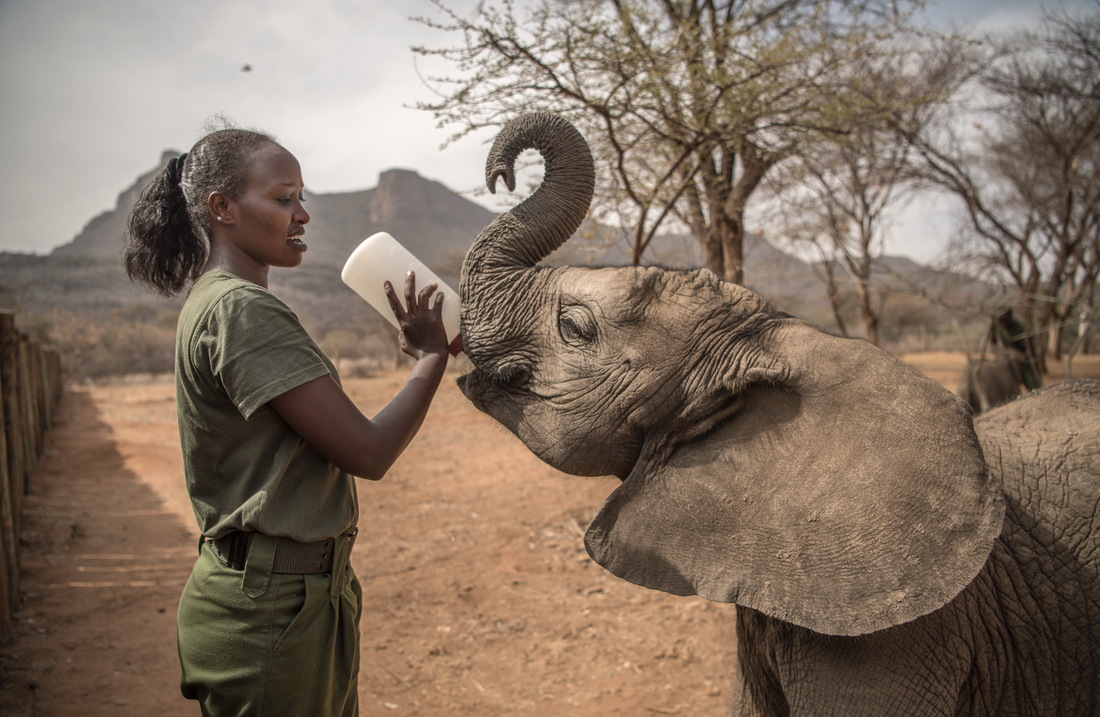
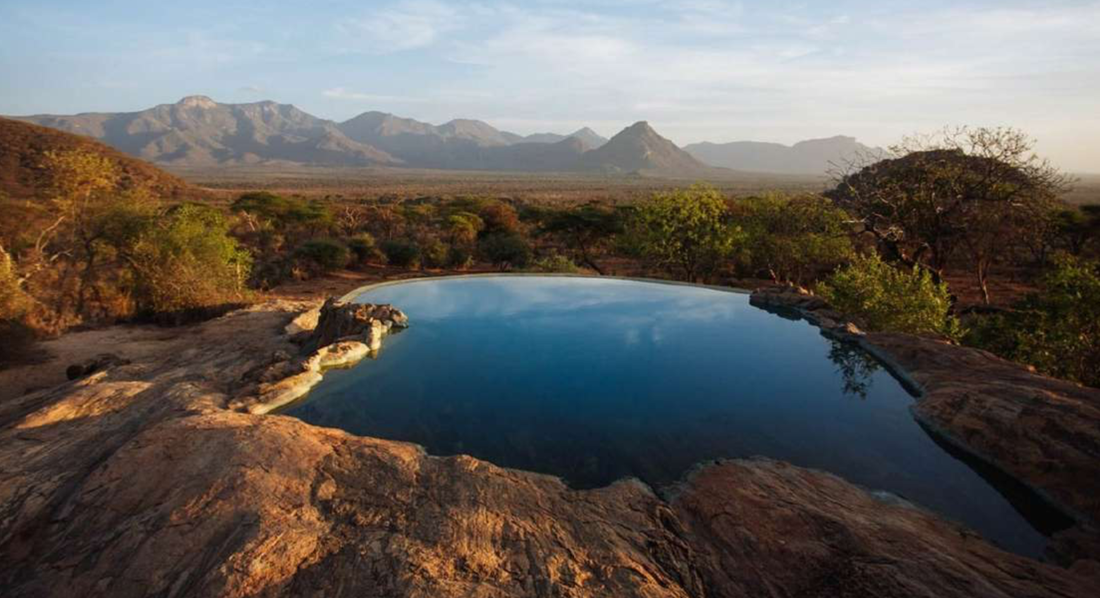
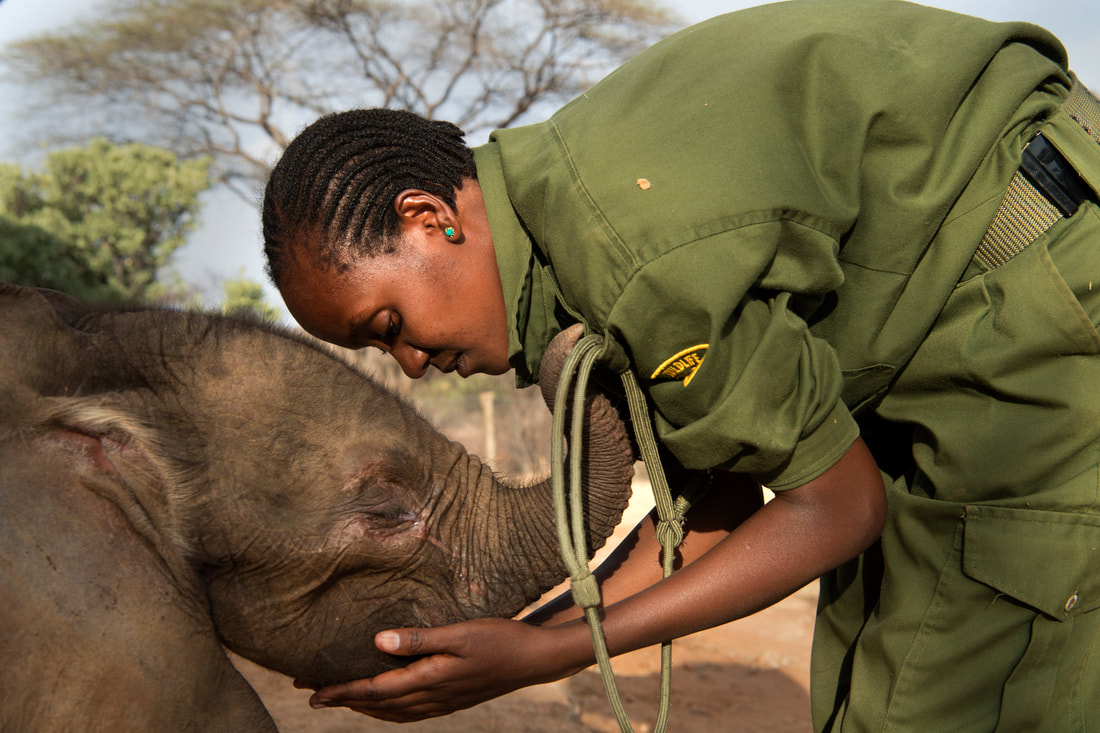
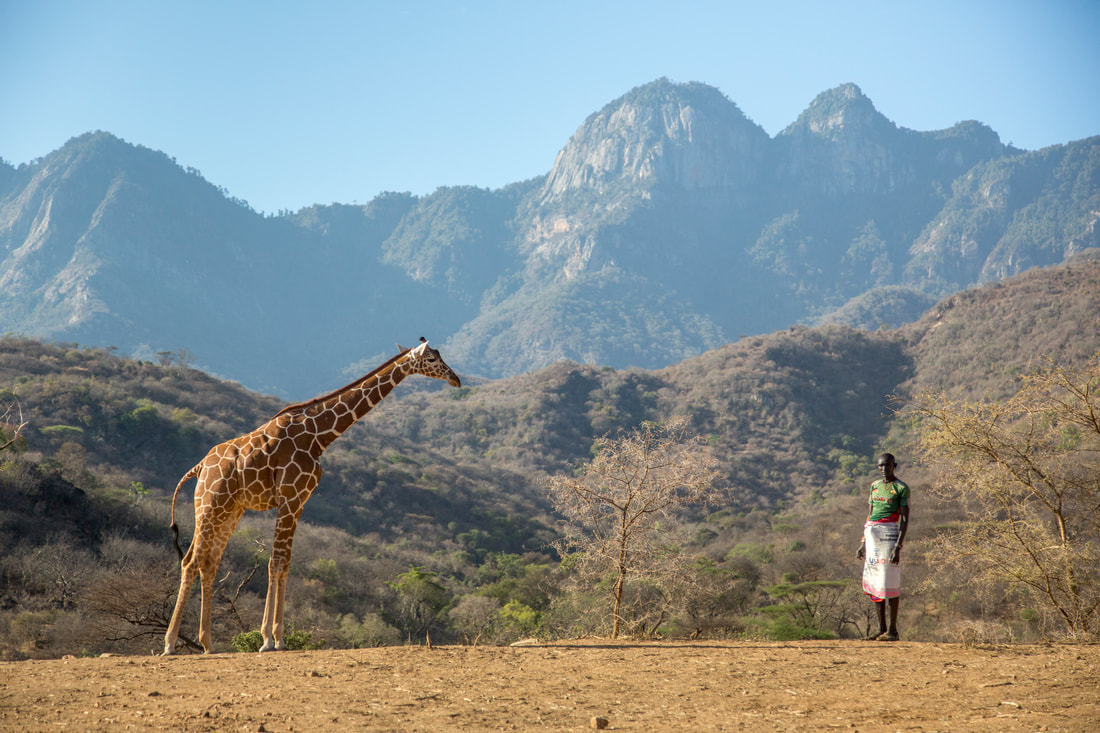
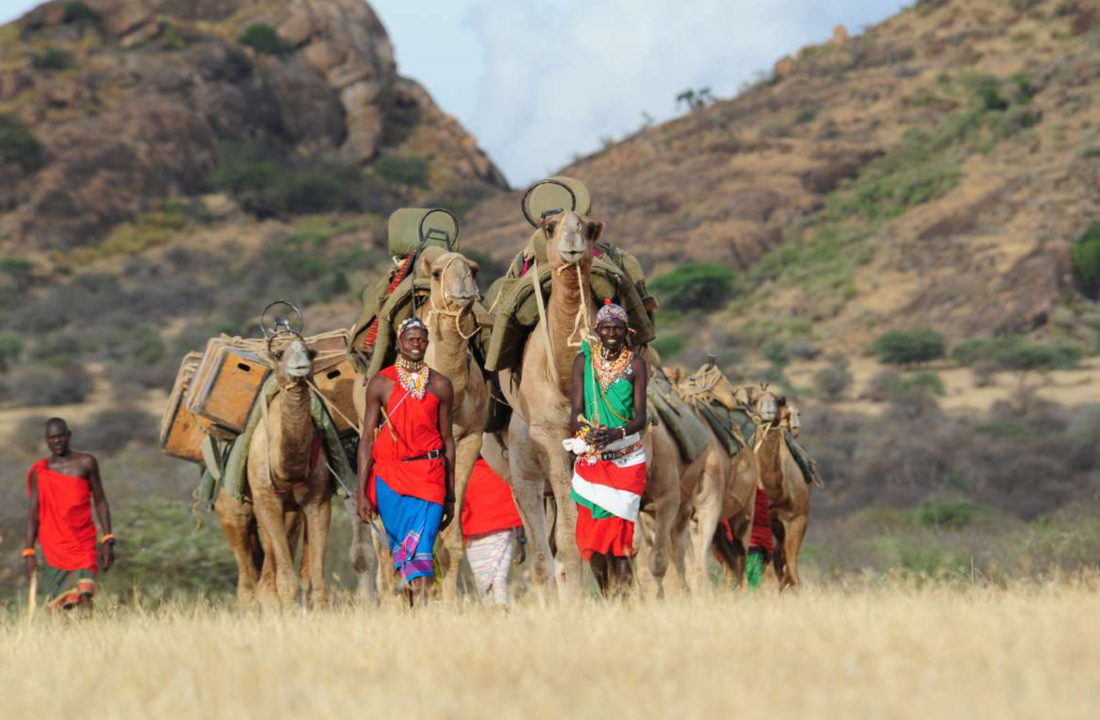
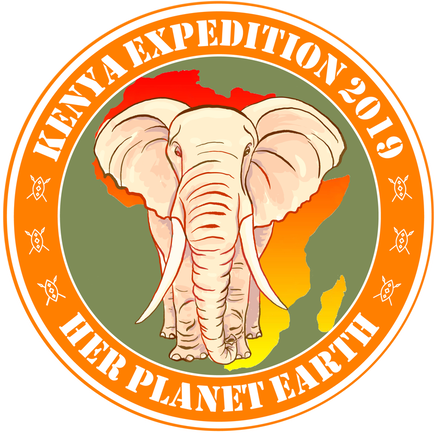
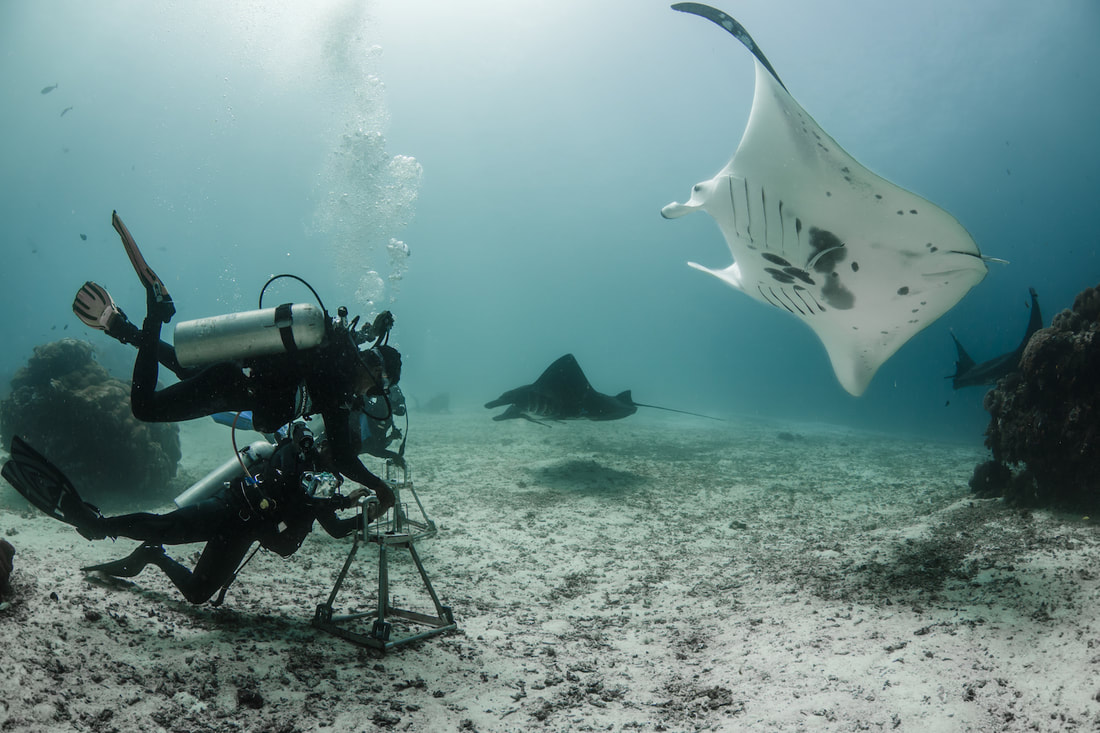
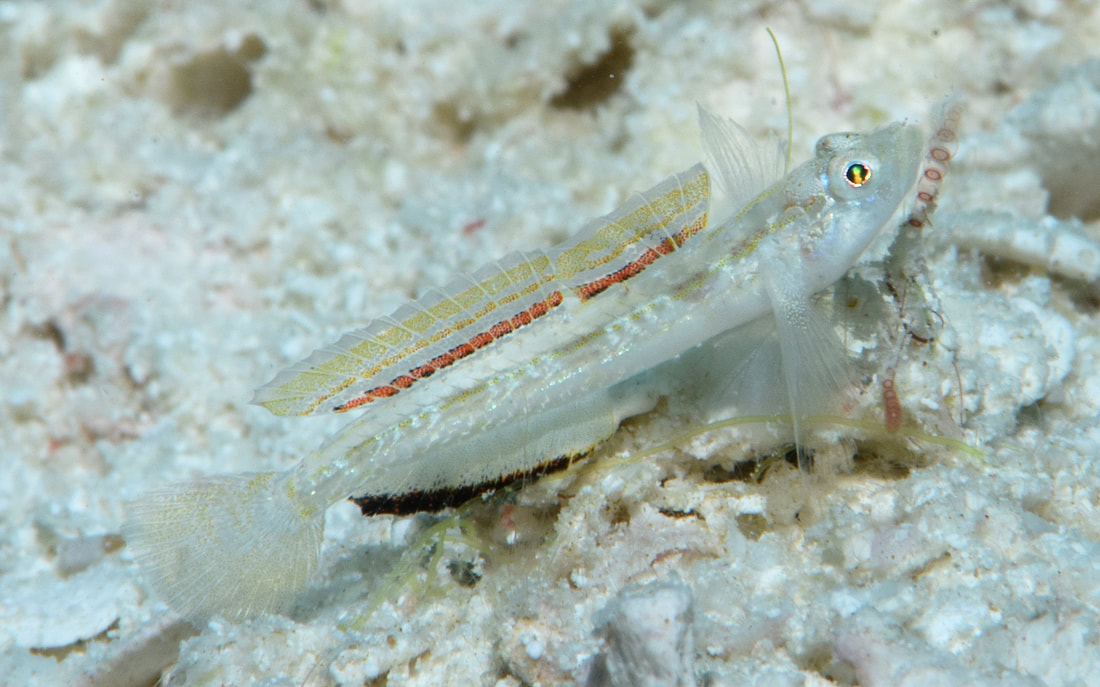
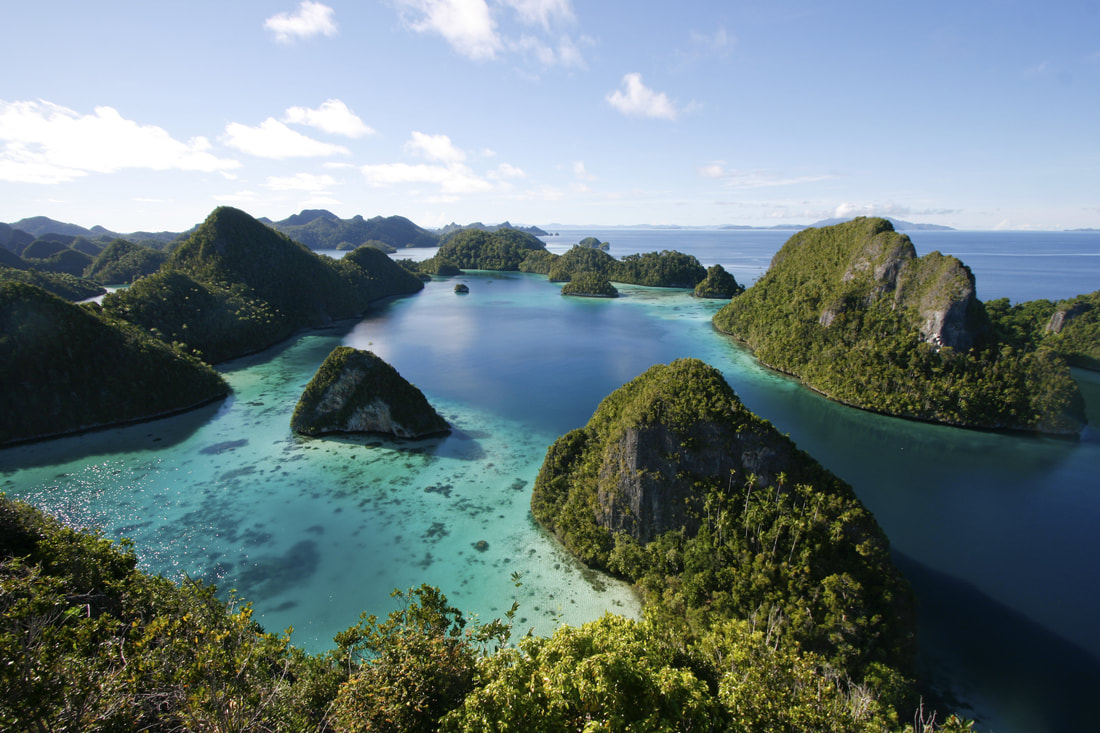
 RSS Feed
RSS Feed